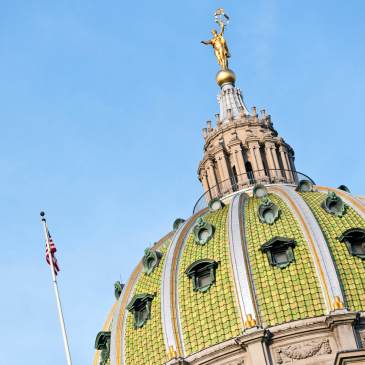
Pennsylvania’s Democratic House majority, with limited Republican support, passed a multi-part Fiscal Code bill last week in an attempt to authorize the outstanding funds for counties and school districts that remain unresolved in this year’s budget. Lawmakers also took unprecedented action to allow funding for state-related universities without needing a two-thirds majority vote.
The Commonwealth has been mired in a budget deadlock for more than four months, holding up more than $1 billion in state funding for various state programs and certain educational institutions. This gridlock has prevented funds from reaching state-related universities, including Pitt, Penn State, Lincoln, and Temple.
On Wednesday, Appropriations Committee Democrats modified a bill previously passed House bill, striking language from Senate Republicans and replacing it with new language enabling the fiscal code to move forward.
Funding mechanisms for K-12 schools and non-preferred universities were handled similarly, as Democrats replaced individual appropriations to the four aforementioned universities with a non-specific grant allocation.
Prior attempts to drive out this funding had been stalled by GOP demands that the institutions provide more robust financial disclosures and agree to a tuition freeze.
The novel maneuver last week enabled Democratic lawmakers to circumvent the two-thirds vote required for individual educational appropriations under the state constitution.
House Republican Leader Bryan Cutler (R-Lancaster) called the Fiscal Code package “a behemoth bill that carries legislation that otherwise would not pass.”
The revised Fiscal Code package would authorize $125 million for the Whole Home Repairs program, $50 million in emergency hospital assistance, and $7.5 million to fund public defense in the Commonwealth.
Separately, the School Code bill provides $100 million in Level Up funding for the state’s poorest school districts and a $150 million boost to the Educational Investment Tax Credit (EITC), albeit with new reporting requirements that some EITC advocates oppose.
Majority Leader Matt Bradford called Wednesday’s action “an honest attempt to facilitate those loose ends” that remain unresolved following the completion of Pennsylvania’s main budget bill, while House Appropriations Chairman Jordan Harris (D-Philadelphia) described the legislation as “a comprehensive fiscal code that encapsulates and enables all of the provisions of this year’s budget.”
Nevertheless, these proposals will face an uncertain future in the Republican-controlled Senate when the upper chamber returns to session next Monday, October 16.